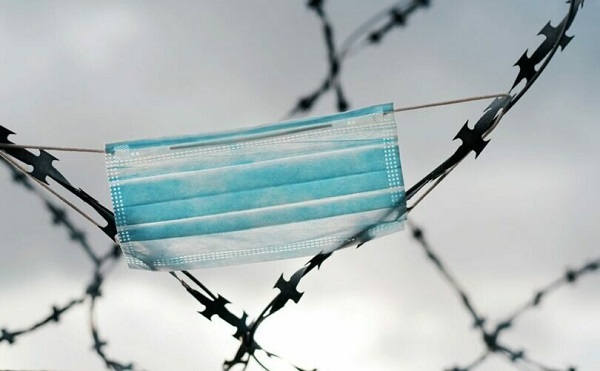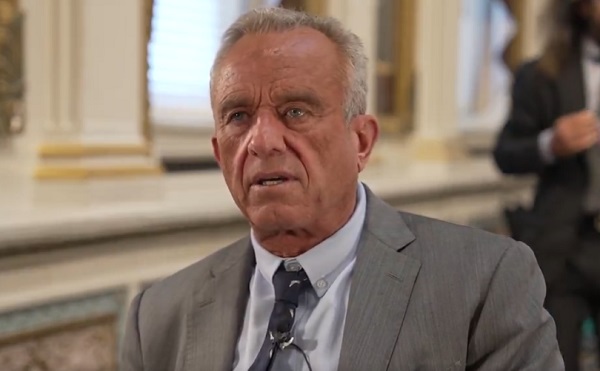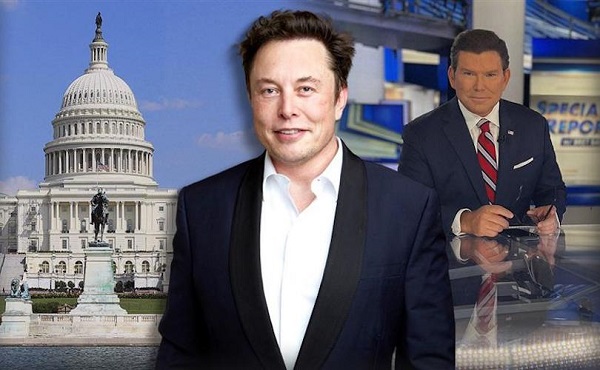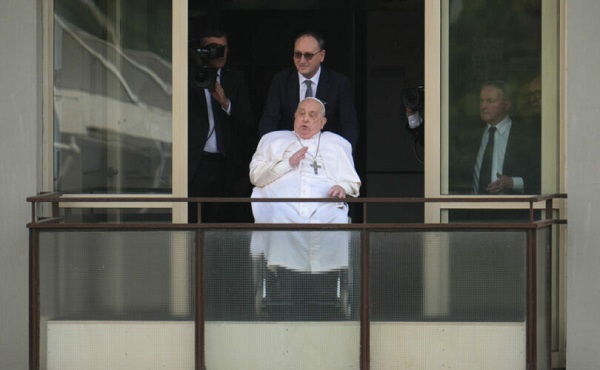COVID-19
US House COVID report vindicates lab leak theory but tries to defend ‘success’ of the jabs

From LifeSiteNews
“the federal government supported dangerous gain-of-function research in Wuhan, China without adequate transparency or oversight, and that former White House COVID adviser and National Institute of Allergy & Infectious Diseases (NIAID) director Dr. Anthony Fauci “played semantics with the definition of gain-of-function research” to deny it
The U.S. House Oversight & Accountability Committee’s Select Subcommittee on the Coronavirus Pandemic has released its long-awaited After Action Review on COVID-19 and the government response, which affirms the verdict that COVID most likely originated in a lab through gain-of-function research and broadly condemns the lockdowns of personal freedom and economic activity but attempts to walk a far finer and sometimes contradictory line on the COVID vaccines.
Worked on for almost two years, the 520-page report is billed as the “single most thorough review of the pandemic conducted to date,” according to a press release from the committee.
“This work will help the United States, and the world, predict the next pandemic, prepare for the next pandemic, protect ourselves from the next pandemic, and hopefully prevent the next pandemic. Members of the 119th Congress should continue and build off this work, there is more information to find and honest actions to be taken,” said Republican Rep. Brad Wenstrup of Ohio, the chairman of the subcommittee. “The COVID-19 pandemic highlighted a distrust in leadership. Trust is earned. Accountability, transparency, honesty, and integrity will regain this trust. A future pandemic requires a whole of America response managed by those without personal benefit or bias. We can always do better, and for the sake of future generations of Americans, we must. It can be done.”
The report concludes that COVID most likely “emerged as the result of a laboratory or research related accident,” that the federal government supported dangerous gain-of-function research (that entails intentionally strengthening viruses to better study their potential effects) in Wuhan, China without adequate transparency or oversight, and that former White House COVID adviser and National Institute of Allergy & Infectious Diseases (NIAID) director Dr. Anthony Fauci “played semantics with the definition of gain-of-function research” to deny it, as well as prompting creation of the controversial “Proximal Origins” paper to attempt to discredit the lab-leak theory.
It further found that officials within NIAID actively attempted to flout Freedom of Information Act (FOIA) requests for documents on the matter, such as by intentionally misspelling various names and terms so they would be harder to find in word searches.
The report goes on to conclude that the enormous sums of money the government doled out in the name of COVID relief was rife with waste and abuse, including more than $191 billion in unemployment fraud, $64 billion worth of fraud in the Paycheck Protection Program, and the loss of $200 billion due to the Small Business Administration failing to implement proper oversight and controls.
Meanwhile, the infamous “social distancing” guidance for people to stand at least six feet apart was based on “no scientific trials or studies,” but despite admitting as much, Fauci declined to push back because, in his words, it was “not appropriate to be publicly challenging a sister organization.” Face masks were similarly unsupported by the science and ultimately proven to be ineffective at limiting COVID’s spread, and widespread lockdowns of businesses and public gatherings caused significant harm to the economy, to physical and mental health, and to children’s education and social development far outweighing whatever good they may have done.
On the subject of the controversial COVID vaccines, however, the report is far more deferential. It acknowledges that the shots “had adverse events that must be thoroughly investigated,” and discusses various shortcomings in the government’s reporting systems for adverse vaccine events but still concludes that, overall, the vaccines were “largely safe and effective,” and credits them with saving “millions” of lives.
Operation Warp Speed, the Trump administration initiative to develop vaccines for COVID in a fraction of the time vaccines usually take, “was a tremendous success,” the subcommittee says, and the resulting vaccines “undoubtedly saved millions of lives by diminishing likelihood of severe disease and death.” It even faults President Joe Biden and Vice President Kamala Harris, who were running against Donald Trump for the White House at the time, for “question(ing) the safety and efficacy of COVID-19 vaccinations” before they were released.
At the same time, the report faults the following Biden administration for mandating the shots and rushing approval of vaccine booster doses, downplaying natural immunity, failing to properly adjudicate vaccine injuries, and exaggerating the vaccines’ value.
“COVID-19 vaccines were tremendously important in reducing the severity of COVID-19 symptoms and were extremely effective in doing so,” the report claims. “However, the Biden Administration oversold the power of these vaccines. On more than one occasion, President Biden himself overstated the vaccine’s ability to prevent infection and transmission. These false statements likely contributed to Americans’ confusion about COVID-19 vaccines and reduced overall vaccine confidence.”
The subcommittee report largely reiterates and aligns with a wealth of previous findings on the failures of lockdowns and forced masking, as well as the origins of COVID-19. On the subject of the vaccines, however, it neglects a large body of evidence of far more widespread harm.
The federal Vaccine Adverse Event Reporting System (VAERS) reports 38,068 deaths, 218,646 hospitalizations, 22,002 heart attacks, and 28,706 myocarditis and pericarditis cases as of October 25, among other ailments. U.S. Centers for Disease Control & Prevention (CDC) researchers have recognized a “high verification rate of reports of myocarditis to VAERS after mRNA-based COVID-19 vaccination,” leading to the conclusion that “under-reporting is more likely” than over-reporting.
An analysis of 99 million people across eight countries published February in the journal Vaccine “observed significantly higher risks of myocarditis following the first, second and third doses” of mRNA-based COVID vaccines, as well as signs of increased risk of “pericarditis, Guillain-Barré syndrome, and cerebral venous sinus thrombosis,” and other “potential safety signals that require further investigation.” In April, the CDC was forced to release by court order 780,000 previously undisclosed reports of serious adverse reactions, and a study out of Japan found “statistically significant increases” in cancer deaths after third doses of mRNA-based COVID-19 vaccines and offered several theories for a causal link.
In Florida, an ongoing grand jury investigation into the vaccines’ manufacturers is slated to release a report on the safety and effectiveness of the COVID vaccines, and a lawsuit by the state of Kansas has been filed accusing Pfizer of misrepresentation for calling the shots “safe and effective.” The findings of both efforts are highly anticipated.
All eyes are currently on returning President Trump, and whose health team, which will be helmed by prominent vaccine critic Robert F. Kennedy, Jr. as his nominee for Secretary of Health & Human Services, has given mixed signals as to the prospects of reconsidering the shots for which he has long taken credit, and has nominated both critics and defenders of establishment COVID measures for a number of administration roles.
COVID-19
17-year-old died after taking COVID shot, but Ontario judge denies his family’s liability claim

From LifeSiteNews
Ontario Superior Court Justice Sandra Antoniani ruled that the Department of Health had no ‘duty of care’ to individual members of the public in its pandemic response.
An Ontario judge dismissed a liability claim from a family of a high schooler who died weeks after taking the COVID shot.
According to a published report on March 26 by Blacklock’s Reporter, Ontario Superior Court Justice Sandra Antoniani ruled that the Department of Health had no “duty of care” to a Canadian teenager who died after receiving a COVID vaccine.
“The plaintiff’s tragedy is real, but there is no private law duty of care made out,” Antoniani said.
“There is no private law duty of care to individual members of the public injured by government core policy decisions in the handling of health emergencies which impact the general population,” she continued.
In September 2021, 17-year-old Sean Hartman of Beeton, Ontario, passed away just three weeks after receiving a Pfizer-BioNtech COVID shot.
After his death, his family questioned if health officials had warned Canadians “that a possible side effect of receiving a Covid-19 vaccine was death.” The family took this petition to court but has been denied a hearing.
Antoniani alleged that “the defendants’ actions were aimed at mitigating the health impact of a global pandemic on the Canadian public. The defendants deemed that urgent action was necessary.”
“Imposition of a private duty of care would have a negative impact on the ability of the defendants to prioritize the interests of the entire public, with the distraction of fear over the possibility of harm to individual members of the public, and the risk of litigation and unlimited liability,” she ruled.
As LifeSiteNews previously reported, Dan Hartman, Sean’s father, filed a $35.6 million lawsuit against Pfizer after his son’s death.
Hartman’s family is not alone in their pursuit of justice after being injured by the COVID shot. Canada’s Vaccine Injury Support Program (VISP) was launched in December 2020 after the Canadian government gave vaccine makers a shield from liability regarding COVID-19 jab-related injuries.
However, only 103 claims of 1,859 have been approved to date, “where it has been determined by the Medical Review Board that there is a probable link between the injury and the vaccine, and that the injury is serious and permanent.”
Thus far, VISP has paid over $6 million to those injured by COVID injections, with some 2,000 claims remaining to be settled.
According to studies, post-vaccination heart conditions such as myocarditis are well documented in those, especially young males who have received the Pfizer jab.
Additionally, a recent study done by researchers with Canada-based Correlation Research in the Public Interest showed that 17 countries have found a “definite causal link” between peaks in all-cause mortality and the fast rollouts of the COVID shots as well as boosters.
COVID-19
10 Shocking Stories the Media Buried This Week

Measles, Fauci, Politics and Public Education. This is a fascinating read
#10 – ‘Measles Death’ of 6-Year-Old Girl Exposed as a Media HOAX
The media claimed a 6-year-old girl died of measles, but “she did not die of measles by any stretch of the imagination,” Dr. Pierre Kory says.
“In fact, she died of pneumonia. But it gets worse than that because she didn’t really die of pneumonia. She died of a MEDICAL ERROR.”
Let that sink in.
What happened was a complete breakdown in basic medical care. The hospital failed to give her the appropriate antibiotic regimen to treat her pneumonia. By the time they corrected their mistake, it was too late, and the girl died “catastrophically.”
“I mean, this is like medicine 101. You put them on two antibiotics to cover all the possibilities. It’s a grievous error, and it’s an error which led to her death,” Dr. Kory attested.
Not only did Covenant Children’s Hospital fail to provide the appropriate antibiotic, but when they noticed their error, they dragged their feet and took another 10 hours to administer it.
“By that time, she was already on a ventilator. And approximately 24 hours later—actually, less than 24 hours later—she died,” Dr. Kory explained.
And she did not pass away peacefully. According to Dr. Kory, “She died rather catastrophically.”
And while her family grieved, the media hijacked her death to stir fear and push the vaccine narrative. Just another “measles death” used as a political weapon.
This is a case Dr. Pierre Kory calls “absolutely enraging.”
And it is. Just another example of how the media will shamelessly twist the story of a grieving family’s loss to push Big Pharma’s agenda. That’s not just dishonest. That’s evil, plain and simple.
Follow @ChildrensHD for the full interview and more details on this enraging story.
(See 9 More Revealing Stories Below)
#9 – Bill Maher guest calls out Fauci’s ridiculous pardon, saying, “There’s a reason he was given a pardon back to 2014.”
“There is something very wrong going on here.”
“Everyone knew it [gain-of-function research] was dangerous a long time ago. You go back to 2015, you will find a big meeting in London where they say there’s one lab in the world most likely to have a problem with this—Wuhan. Do you know who was the biggest supporter of gain of function research for the last 30 years? Anthony Fauci.”
It turns out that in 2014, 300 scientists warned Anthony Fauci would start a global pandemic.
RFK Jr. previously explained that following the high-profile escape of three bugs from U.S. labs, these 300 scientists sent a letter to President Obama, urging him to shut down Anthony Fauci’s gain-of-function research.
Obama issued a moratorium and shut down 18 of the worst projects by Anthony Fauci. In the end, he really didn’t shut them down. Instead, Obama moved the research offshore to places like Ukraine, the former Soviet State of Georgia, and the Wuhan Institute of Virology in Wuhan, China.
Now, it is widely accepted that COVID-19 originated from that very lab in Wuhan, China. The 300 scientists were right when they said Anthony Fauci would start a global pandemic.
#8 – Kevin O’Leary delivers a harsh reality check to people burning Teslas: You’re going to “rot in hell in prison.”
“And frankly, as far as I’m concerned, that’s okay,” he said.
O’Leary left no room for debate, making it clear that there’s zero justification for the destruction:
“When you set a car on fire, you should go to jail. You’re a criminal. And I don’t think we have to talk about it in any other context.”
He also had a blunt message for those thinking they’ll get away with it:
“And all those cars have cameras in them, and those dealerships have cameras. You’re beyond being stupid when you do that… You’re going to spend five to 20 years in prison. If they get them on terrorism—which I think is a stretch—there will be no parole, no shortened sentence. They’ll rot in hell in prison for 20 years. And frankly, as far as I’m concerned, that’s okay.”
#7- Stephen A. Smith Rips his OWN STAFF while recording his show.
Smith grilled his staff’s loyalty to the Democratic Party after pitching this common-sense idea to Democrats: “Rather than telling us what we should vote against, maybe you should present us with options of what to vote for.”
“I mean, my God. Are you okay, Michael, with me suggesting that? Are you okay with me, Sherry, suggesting that?” Smith asked.
“Rashawn Galen and all of a bunch of leftists that’s under my umbrella trying to act like they’re independents when they’re full of it! I’m talking about my own damn staff,” he clarified.
“I’m a centrist. I think my man, Rashawn, is a centrist. The rest of these damn people working for me. I mean, what left-wing party are you associated with? I mean, you gotta believe this stuff.”
“Pay for performance. That’s what businesses do. There’s no reason we shouldn’t be running our public schools in the same way.”
Vivek announced that he plans for Ohio to become the first state in the nation to adopt merit-based pay for every teacher, principal, and administrator.
He says that performance reviews should go beyond standardized testing, incorporating peer reviews, parent feedback, and student outcomes—with a clear goal of rewarding the best educators.
“The best teachers in the country right now, sadly, are underpaid. We need to fix that—but fix it through meritocracy,” Vivek said. “Thanks to President Trump’s bold actions today, we can lead the way.”
While you’re here, don’t forget to follow me (@VigilantFox) for more weekly news roundups.
#5 – Tim Walz absurdly claims that Trump’s plan to dismantle the Department of Education could take America back to an era of racial segregation.
“And then it’s about the Civil Rights Department at the Department of Education that makes sure that we don’t have a situation where a Ruby Bridges is escorted to school with police. And so we’re back in an area where we can segregate,” Walz said.
Somehow, giving control back to the states means we’re suddenly back in 1960. This is why no one takes Democrats seriously anymore. All they do is cry wolf.
#4 – Bill Maher believes JFK wasn’t killed by a lone gunman—says a lot of people wanted Kennedy dead.
QUESTION: “Is it time to move on from this conspiracy theory?”
MAHER: “Well, I mean, do you think it’s a conspiracy theory? Plainly, there was not a single gunman, right?… But the magic bullet. There could not have been a bullet that went through a guy, went around him, came back, went through the other guy, got lunch at the diner, came back, shot him in the back of the head. I mean, it’s just. Come on, everybody heard a shot from the grassy knoll.”
“The idea that the CIA is going to now suddenly go, ‘You’re right, we had something to do with it.’ I’m not saying they did, but a lot of people wanted him [JFK] dead.”
“So you may think that the government computers all talk to each other. They synchronize, they add up what funds are going somewhere, and it’s coherent that the numbers, for example, that you’re presented as a senator, are actually the real numbers. They’re not,” Musk explained.
“They’re not totally wrong,” he continued. “They’re probably off by 5% or 10% in some cases. So I call it Magic Money Computer. Any computer which can just make money out of thin air. That’s Magic Money.”
“So how does that work?” Ted Cruz asked.
“It just issues payments,” Musk answered. “I think we found now 14 magic money computers. They just send money out of nothing.”
This raises a critical question: If the government’s books are off by 5% to 10% in some cases, leaving up to hundreds of billions of dollars unaccounted for, where is all that money actually going?
#2 – The New York Times finally ADMITS the “conspiracy theorists” were right about COVID and that Fauci and the “experts” misled the public.
“Perhaps we were misled on purpose.”
I can’t believe they actually printed this. Here’s what they’re finally admitting:
• Tony Fauci, Francis Collins, and Jeremy Farrar coordinated a media strategy to discredit lab leak discussions. Emails show they worked behind the scenes to smear and silence anyone who questioned the official narrative.
• The Biden administration and intelligence agencies pressured social media platforms like Twitter and Facebook to censor lab leak discussions and label them as “misinformation.”
• Kristian Andersen, Robert Garry, and other scientists knew the truth but covered it up. Behind closed doors, they admitted a lab escape was likely. In public, they dismissed it as a “conspiracy theory.”
• WHO’s Jeremy Farrar got a burner phone to secretly coordinate meetings with Fauci, Collins, and top scientists, ensuring their discussions stayed off the record.
• Kristian Andersen, Robert Garry, and Eddie Holmes strategized how to mislead New York Times reporter Donald McNeil Jr., making sure he didn’t dig too deep into the lab leak theory.
• The infamous Proximal Origin paper, authored by Andersen, Garry, Holmes, Andrew Rambaut, and W. Ian Lipkin, was a coordinated effort to mislead the public. Private Slack messages revealed they believed a lab escape was not only possible but likely—yet they publicly denied it.
• Peter Daszak and EcoHealth Alliance helped cover for the Wuhan Institute of Virology, despite knowing their risky gain-of-function research could have caused the outbreak.
• The Wuhan lab, run by Shi Zhengli (“Bat Woman”), had horrifyingly lax safety protocols—yet they expected the public to believe a leak was impossible.
And now, after years of smearing and slandering the “conspiracy theorists,” The New York Times is quietly admitting the so-called “conspiracy theorists” were right all along.
#1 – RFK Jr. Sounds the Alarm on Bird Flu Vaccines
The USDA plans to inject millions of chickens to stop the bird flu outbreak, but RFK Jr. says “leaky vaccines” could make things worse.
He breaks it down here. This is the must-read thread of the week:
|
Originals
|
||||||
RFK Jr. Issues Grave Vaccination Warning |
||||||
|
||||||
|
The USDA wants to vaccinate millions of chickens to stop the bird flu. They claim it’s the ultimate solution, but not everyone’s convinced. RFK Jr., for one, is sounding the alarm.
|
||||||
|
While you’re here, don’t forget to follow me (@VigilantFox) for more weekly news roundups.
-

 Alberta2 days ago
Alberta2 days agoProvince announces plans for nine new ‘urgent care centres’ – redirecting 200,000 hospital visits
-

 Health2 days ago
Health2 days agoArkansas approves ivermectin for purchase without prescription
-

 2025 Federal Election2 days ago
2025 Federal Election2 days agoDonald Trump suggests Mark Carney will win Canadian election, touts ‘productive call’ with leader
-

 Health2 days ago
Health2 days agoRFK Jr. says ‘everything is going to change’ with CDC vaccine policy in Michael Knowles interview
-

 Business2 days ago
Business2 days agoElon Musk, DOGE officials reveal ‘astonishing’ government waste, fraud in viral interview
-

 Business2 days ago
Business2 days agoLabor Department cancels “America Last” spending spree spanning five continents
-

 2025 Federal Election2 days ago
2025 Federal Election2 days agoNext federal government should recognize Alberta’s important role in the federation
-

 Automotive1 day ago
Automotive1 day agoTrump warns U.S. automakers: Do not raise prices in response to tariffs





















